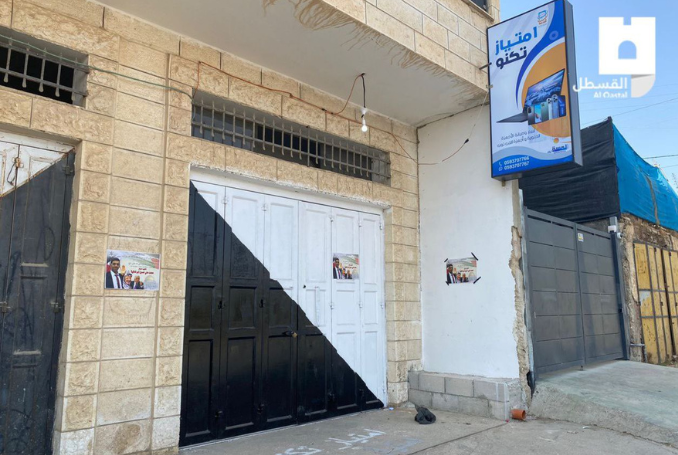
By David Harrop
I recently received this e-mail from the Palestinian Union of Social Workers and Psychologists (PUSWP):
“We received with great sorrow the news of the martyrdom of the social worker, Muhammad Ali Abu Kafeeh, who works as a social counselor at Ibn Khaldoun Elementary Boys School / Jerusalem.”
Muhammad was martyred west of the city of Nablus. The occupation soldiers executed him on the spot Muhammad is 36 years old, married, and has three children.
My thoughts went back to 2014 when we went to pay our respects to the family of Hebron-based children’s social worker and martyr Hashem Abu Maria. He had also been shot and killed by an occupation military sniper as he was going about his professional business. The chief executive of the International Federation of Social Workers (IFSW) subsequently wrote a moving tribute to raise global awareness about the death of a colleague who lost his life whilst actively at his work in his community.
The Global Development Agenda for Social Work was launched at the 2010 biennial global meeting of the IFSW in Hong Kong. This agenda seeks to recognize the global nature of the social work profession with common values, ethics, standards, and training. It seeks to establish that all social workers are members of a global community of practitioners and to promote peer-to-peer solidarity.
Under the aegis of this agenda, a small group of UK practitioners met together with Palestinian colleagues and created the Palestine UK Social Work Network (PALUK) in 2011 This group has sought to create and develop relationships between practitioners from the respective countries.
When considering Palestinian colleagues, it is stark that those who dedicate their careers to safeguarding others who are at risk of harm, can themselves be unprotected, and through their work can place themselves at risk. They know that within their communities, people, particularly youth and children are at constant threat of harm, and who risk being arrested, injured, killed, and traumatized by fear and exposure. As social workers and human rights workers, they seek to bring their vocation, their skills, knowledge, and expertise to bear, to try and effect some levels of protection, and pioneer routes into improved levels of psychological well-being and emotional security.
As a global social work community, we have sought to support and raise awareness about Palestinian colleagues who have been arrested and detained. In 2018 there was a global campaign to support a social worker M. from the Aida refugee camp who was arrested whilst conducting his activities in supporting local youth. He later commented that the awareness of this global support was not only helpful to him and his family but also to other Palestinians who were imprisoned with him.
On September 25, Samidoun The Palestine Prisoners Solidarity Network reported that there are currently several social work colleagues amongst those in detention in Israeli prisons who are on hunger strike to protest about their extra-judicial detention.
Bethlehem social worker Nidal Abu Aker (54) who has spent many years in prison following multiple arrests for his street-based /activist practice in the Dheisheh refugee camp. He has consistently protested about the inhumanity and is on a hunger strike to raise awareness about the issue
Likewise, Ghassan Zawahreh (40) another Dheisheh-based social work practitioner is also in detention and on hunger strike. Similarly, he has also experienced multiple arrests, interrogations, and detentions. Samidoun report that Ghassan is a well-known volunteer in community programs providing social work support in the community. After many disruptions, he has finally recently graduated with a BA in social work.
Occupation prisons are commonly recognized as places of intolerable oppression. “To return to prison is to wilfully return to a different type of death,” “M“, a former Palestinian political detainee told Mondoweiss.
Whilst the occupation army continues to march into overcrowded Palestinian communities, many people, particularly children, continue to risk being harmed, traumatized, and potentially killed. Even during times when there is no violence, the legacy and trauma persist and are defining features in the psyche of the individuals and of the community
Because of this, there is a need for experienced, qualified social workers who are present, and who have the necessary knowledge to respond to this and help to generate a capacity for steadfastness and resilience. Such skilled and committed practitioners are a vital resource for communities under duress.
Whilst we seek to raise awareness of all of the 4600+ prisoners held in Israeli prisons, specifically we want to support colleagues with whom we share a professional identity as our global colleagues as a means of raising awareness about the wider issue.
Such solidarity stems from a sense of anger about human rights violations, allied with a sense of collegiate concern. Where do we go with this anger? Arguably we need to try and educate ourselves to better understand the situation. We need to raise awareness about this to enlist support from our wider social worker community.
However, there are multiple forces at play seeking to suppress information and restrict awareness about these Palestinian human rights violations. Through the occupation, there is an organized network of agencies to control and restrict wider awareness of the day-to-day reality of life under occupation. Whilst there is censorship, monitoring, and surveillance regarding information that comes out of Palestine, there also remain active conduits to disseminate and share information and reflections. With the increased potential to develop and tap into such streams, the capacity for raised awareness and interconnectedness is ever-expanding.
As a result of this, it becomes feasible to become aware of repressive issues and to engage in the struggle for human rights, peace, and justice. One of the cries about state censorship from South African apartheid was.
“You have stolen our lands, our future, our rights, and after that you have taken our power of speech”
William Kentridge Retrospective (2022 Royal Academy Exhibition UK)
In discussion with M, following his release from prison and return to his family and community Aida, we sat and discussed the nature of global solidarity. Arguably, without wider solidarity, the Palestinian struggle risks becoming the sound of just one hand clapping. “Yes,” he said “we need to clap together for freedom and justice”
Whilst this is the specific case in Palestine, it is also the case in many other states around the world, where social workers who are seeking to uphold human rights face daily risks of becoming targeted by a totalitarian political regime. Often, they jeopardize their own safety whilst they seek to safeguard and protect others.
To stand in solidarity with colleagues means we need to DO something. Then, the people with whom we stand in solidarity with will know that despite whatever happens, there are people who actively care and who want to meaningfully support them in their struggle. As practitioners in the caring profession perhaps there is a greater onus to engage with such issues and stand in meaningful solidarity with colleagues who continue to practice at high personal risk, and under extreme duress. Maybe we have a collective duty to try and find ways to become the “other hand.”
– David Harrop is an independent UK-registered social worker and co-founder of Palestine UK Social Work Network (PALUK) in 2011. Contact the author at his address email: harrop_david@yahoo.co.uk. Harrop contributed this article to The Palestine Chronicle.
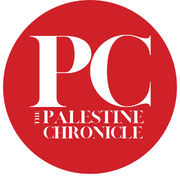
– David Harrop is an independent UK-registered social worker and co-founder of Palestine UK Social Work Network (PALUK) in 2011. Contact the author at his address email: harrop_david@yahoo.co.uk. He contributed this article to The Palestine Chronicle.



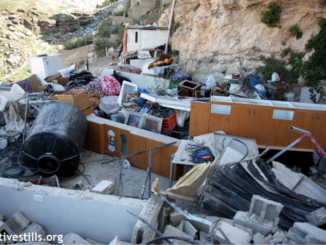
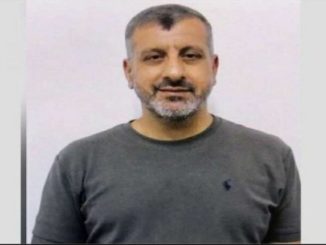
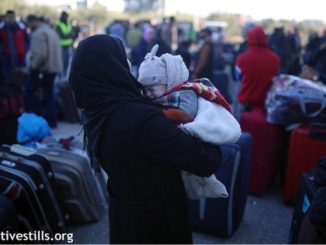


Qantas and El Al are partner airlines so Qantas ignores the appalling human rights record of Israel as it kills and maims Palestinians on a daily basis. The world boycotts Russian airline Aerflot so what about boycotting Qantas and all companies associated with it?
https://www.qantas.com/…/earning-points/flights/el-al.html